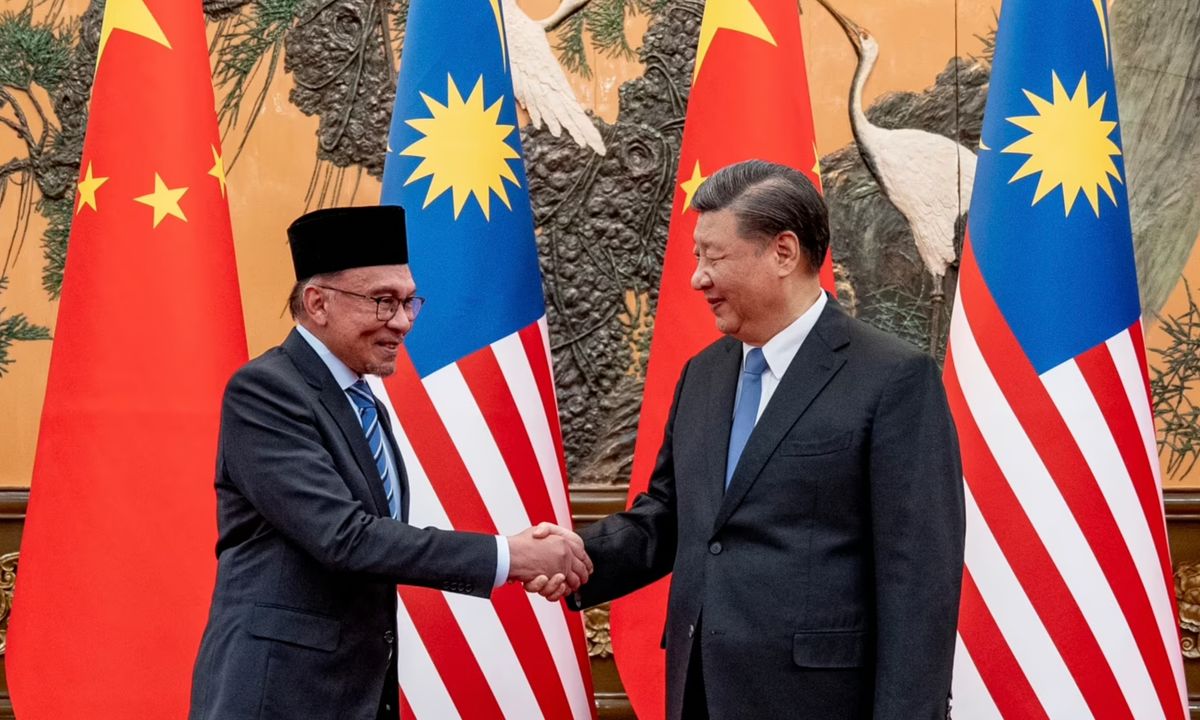Malaysia and China Considering 'Asian Monetary Fund' to Counter Dollar Dominance

The Lede: Beijing is open to talks with Malaysia regarding the formation of an ‘Asian Monetary Fund.' According to Malaysian Prime Minister Anwar Ibrahim, President Xi Jinping said he wanted to discuss the concept.
What We Know:
- Ibrahim proposed establishing an Asian Monetary Fund at the Boao Forum in Hainan last week. He emphasized the need to reduce Malaysia’s reliance on the dollar and the International Monetary Fund.
- Anwar announced the breakdown of the record 170 billion ringgit that China had committed to Malaysia. This includes an initial investment of 2 billion ringgit this year in Zhejiang Geely Holding Group and Proton’s automotive high-tech valley project, which will increase to 32 billion ringgit.
- Rongsheng Petrochemical Co., one of China’s biggest refiners, will be undertaking a 80 ringgit billion project in Pengerang, Johor.
- The idea of an Asian Monetary Fund (AMF) was first put forward by the Japanese government at the G7-IMF meetings in Hong Kong in as a way to help the region tackle the 1997 Asian financial crisis
The Background: Anwar said he had scrapped forming an Asian Monetary Fund during his first term as finance minister in the 1990s citing a strong and useful U.S. dollar that made the idea less favorable at the time. In previous months, former officials in Singapore have discussed what economies in Southeast Asia should be doing to mitigate the risks of a strong dollar that weakens local currencies and is used as a tool for economic pressure. Meanwhile, China has been on an eager promotion campaign for the yuan and expanding economic relations in the region.
Likely Outcomes:
- If the U.S. does not substantially change its monetary and foreign policy as it pertains to Southeast Asia, Malaysia and other countries in the region will likely follow through with the initial steps to diversify finances away, although not wholly, from the dollar. Regional finances may go the way of Asian currencies and an Asian Monetary Fund could become a preferred alternative to IMF loans.
- With countries that have already been undergoing rapid development, the alleviation of pressures that the U.S. dollar has exerted on Southeast Asian countries may be a catalyst for a greater acceleration of economic growth in the region. Other countries that move away from the dollar may experience similar results which could further motivate de-dollarization.
Quotables:
“When I had a meeting with President Xi Jinping, he immediately said, ‘I refer to Anwar’s proposal on the Asian Monetary Fund’, and he welcomed discussions. There is no reason for Malaysia to continue depending on the dollar… now with the strength of the economies of China, Japan and others, I think we should discuss this — at least consider an Asian Monetary Fund, and, secondly, the use of our respective currencies,” - Datuk Seri Anwar Ibrahim, Prime Minister of Malaysia
Good Reads:
Malaysia, China to Discuss ‘Asian Fund’ to Cut US Dollar Dependency (Bloomberg)
Malaysia, China to discuss ‘Asian Fund’ to cut dollar dependency (Free Malaysia Today)
